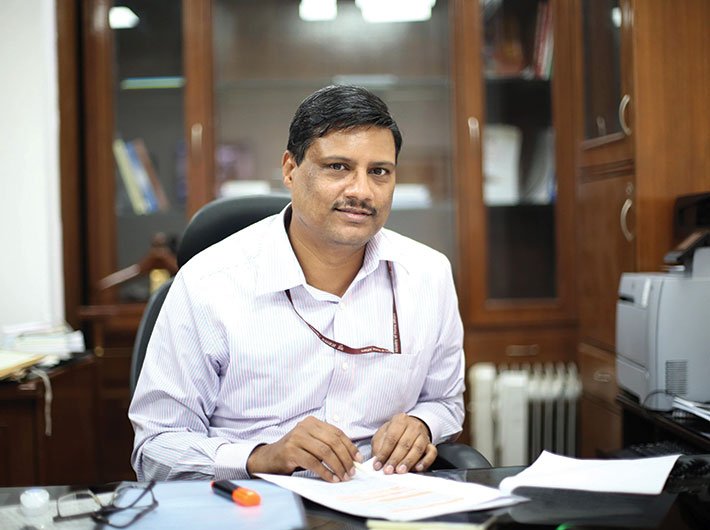Alok Kumar, a 1993 batch IAS officer of UP cadre, joined NITI Aayog as advisor in July 2015. He talks about the proposed National Medical Commission (NMC) bill.
Is the way MCI being run the only problem or the issue is about its rules, regulations and mandate?
It was both. There were structural problems in MCI’s composition in that there was an inherent conflict of interest when the regulators were elected from amongst those who they were supposed to regulate. It became an exclusive domain of the doctors though health as a subject is of vital concern to citizens and in other countries doctors as well as non-doctors jointly regulate the profession.
As far as the rules and regulations formulated by the MCI, they have been largely focused on regulating the inputs rather than outcome. There is a lack of transparency in the processes followed by the MCI and that is why it comes across as an opaque organisation which lacks the professionalism required to regulate such an important profession which affects all the citizens.
How will replacing MCI with NMC improve medical education in India?
By institutionalising an outcome-based regulation approach under the proposed NMC, the focus of the regulator will shift from inputs to quality of medical personnel being produced by the medical institutions. This shift in focus would enable the institutions to focus on quality of teaching and improving the knowledge and skills imparted to their students rather than worrying about the inspector raj. By ensuring proactive disclosure on part of the medical institutions in the form of rating of colleges, the NMC will facilitate the prospective students of making an informed choice, while selecting their institutions of study.
Is MCI alone responsible for the downfall in medical education?
It would be unrealistic to blame MCI alone for the current state of disrepair in the medical education as the parliamentary standing committee points out in its report. But it will also be delusional not to apportion a fair share of responsibility upon MCI in view of the processes, institutional mechanisms and the approach to regulation adopted by them.
How does the bill address the concerns regarding fee regulation?
Regulation of fee needs to balance to countervailing public policy objectives: one objective is to keep fees attractive enough to ensure that private capital investment is attracted to this sector to address the huge shortage in medical personnel and the other is to keep the fees low enough so that no meritorious student is denied an opportunity of pursuing medical studies because she/he cannot afford the fees and also that after passing out they do not need to gouge their patients to recover the investment made in their education. Both are valid concerns and that is why a 40:60 ratio of subsidised seats to fully paid seats was considered as an acceptable compromise.
Many experts call it a big-bang reform. How do you see it?
We see it as a first essential step in the much larger endeavour of reforming the health sector in India. I am personally wary of using such adjectives as “big-bang” because reform is a continuous process.
How will you ensure the new body doesn’t indulge in corruption?
Corruption is defined by this famous formula: Corruption = Monopoly + Discretion – Accountability. In the proposed NMC bill we have tried to reduce monopoly by farming off separate functions to independent boards; to reduce discretion by moving to a well established and a non-discretionary outcome-based regulation from an opaque, non-transparent and discretionary input based regulatory approach. We have also sought enhanced accountability by a well institutionalised system of appointing regulators, provisions for avoidance of conflict of interests, by including non-doctors to bring in perspectives other than those of medical profession and finally a well functioning secretariat that would assist the NMC.
Before drafting the bill, you invited feedback from public and experts. What was the response?
We had an overwhelming response from the common public, members of the profession, various associations and experts. In all, we received over 15,000 suggestions, which we have examined and classified into broad categories. The committee constituted to finalise the draft bill is likely to convene shortly to consider these suggestions and take a final view on the bill.
Why are some branches of IMA and associations of specialist doctors protesting against the bill?
I see this more as a response to protect the interests of the doctor community without taking into account the disillusionment of the general citizens with the current system of regulatory framework that has been put in place. I think this is quite short-sighted because alienating the general public by insistence upon continuing with a discredited system, they stand the risk of a complete lack of faith in the profession, which would not be a good situation for any of the concerned stakeholders.
Many ask if on similar lines, the government would scrap bodies like Bar Council of India, the Institute of Chartered Accountants of India and replace them with nominated bodies.
At present there is no proposal at the NITI Aayog to consider changes in any other professional regulatory bodies; but it is also true that we do not have a scathing indictment of any other body by parliament (representing the sovereign will of the people) as in regard to the MCI.
(The interview appears in October 16-31, 2016 edition of Governance Now)

